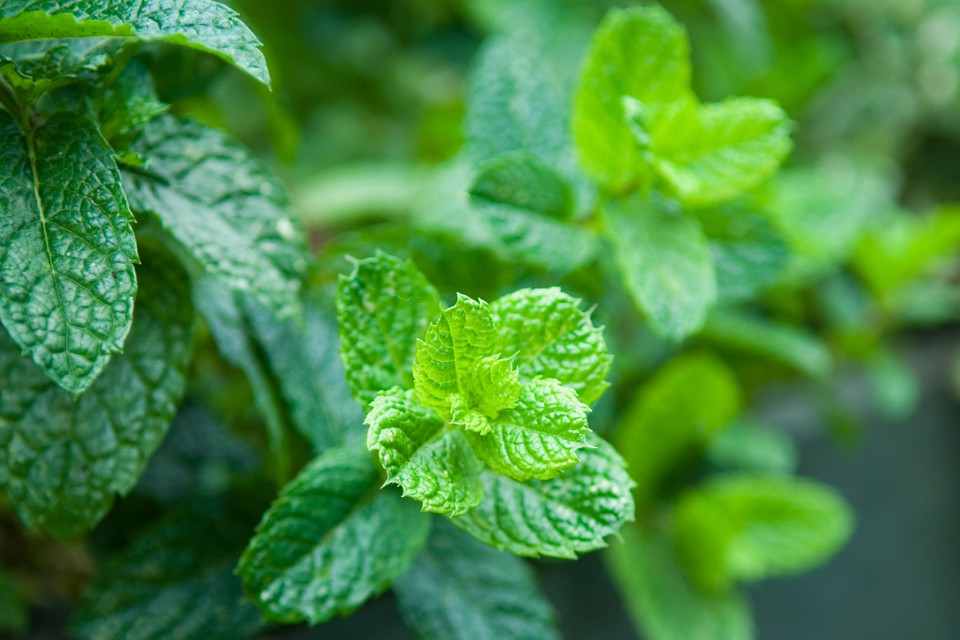Brace yourself, minter is upon us. Every year as the holidays come into view, peppermint everything starts to take over. Coffee flavors, candle scents, and all kinds of festive Christmas candies take advantage of this seasonal herb, but not all delicious snacks are also pet-safe foods. Is peppermint toxic to dogs?
Mint comes in many forms: scents, flavors, and even oils. Not all of these will have the same effect on your pup, though educating yourself about everything minty, including mint poisoning in dogs, will allow you to make the most informed choices for your fur baby. After all, your sweet pup deserves nothing but the best this holiday season — there’s no time to be sick! Luckily, you should be able to avoid any mishaps by using peppermint carefully.
Is peppermint toxic to dogs?
While it’s tempting to look for one simple answer, it’s important to remember that there are literally hundreds of mint species in existence. According to the ASPCA, most wild mints that you may encounter with your dog will only pose mild risks, like vomiting and diarrhea.
It’s the oil of the plant, whether peppermint, spearmint, or perilla mint, that causes intestinal upset. You may also notice irritation of your pup’s nose, skin, or mouth regardless of whether they ingest mint leaves by mouth or inhale it in essential oil form.
You may have discovered that many dog treats, especially breath-freshening treats, include mint as the main ingredient. These snacks won’t include enough of the herb to irritate a dog’s system. In fact, a few peppermint leaves may even aid canine digestion, notes Susan Paretts in SFGATE.
When it comes to peppermint-flavored foods and drinks, it’s best to keep your furry friend far away. That amount of mint is likely not enough to cause a serious problem for your pup but treats like candies and peppermint hot cocoas contain other ingredients that can be dangerous for dogs, too. Foods like chocolate, sugar, butter, and artificial sweeteners should not be fed to your pet, no matter how delicious they may be. Besides, it’s most likely peppermint flavor in your candy — not real peppermint!

Mint poisoning in dogs
Though you may think of mint poisoning as a complication of ingesting the herb or flavor, it’s more common when a dog is exposed to a mint essential oil. There are many concerning reports of pets getting sick from essential oil exposure, though the guilty parties include more than peppermint. The ASPCA lists citrus, pennyroyal, ylang-ylang, peppermint, tea tree, wintergreen, cinnamon, and sweet birch oils as some of the most poisonous for dogs.
Needless to say, these oils should not be diffused, sprayed, or applied near your four-legged friend. If they have been exposed, you may notice some of these symptoms, provided by VCA Hospitals:
- Lethargy or weakness.
- Lack of coordination.
- Difficulty breathing.
- Vomiting (that may smell like the oil).
- Drooling.
- Burns or irritation on the skin, mouth, or paws.
- Muscle tremors.
When it comes to ingesting mint leaves, only one species is known to cause liver damage: English pennyroyal. The other mint species are likely to just cause gastrointestinal distress (which can still be troubling) and other milder symptoms.

Treating mint poisoning in dogs
PetMD notes that veterinarians may induce vomiting, clean out the stomach, or administer activated charcoal to remove ingested toxins. Mild pet shampoo and heavy rinsing will be important if the dog was exposed through touch as well.
Techniques like inducing vomiting should only be done under veterinary supervision, as it can cause complications in some situations. If you suspect that your furry friend may have been exposed to too much peppermint, calling their vet should be your very first move. They can guide you through the most appropriate next steps to keep your dog as safe as possible.
In most situations, mint poisoning is not fatal. Some long-term veterinary care may be required in severe cases, including intravenous hydration and antibiotics, but you may even be able to ride out the symptoms from home. Just ask your vet!
Final thoughts
Now that you know that dogs and mint don’t mix, you can keep your best buddy far away. There are plenty of other ways to indulge in Christmas bliss together, anyways. If you feel particularly compelled to share the refreshing holiday cheer, though, try looking for mint-flavored dog treats or other pet-safe foods to share. Not even the holidays are worth getting sick over!
Editors' Recommendations
- Why does my dog have a bald patch on their tail? Here are the answers you need
- Looking for signs your dog has ticks? These telltale symptoms mean you have a flea or tick problem
- Xylitol is dangerous for dogs: 10 surprising products that contain it as a hidden ingredient
- Here’s how to treat a dog with itchy paws, starting with finding the cause of paw discomfort
- What is the best food for older dogs? These 6 vet-approved kibbles and canned foods won’t steer you wrong




